EPIC ROAD TRIP
Sad and surreal Burundi – taking the unpaved road through a friendly land of contrasts
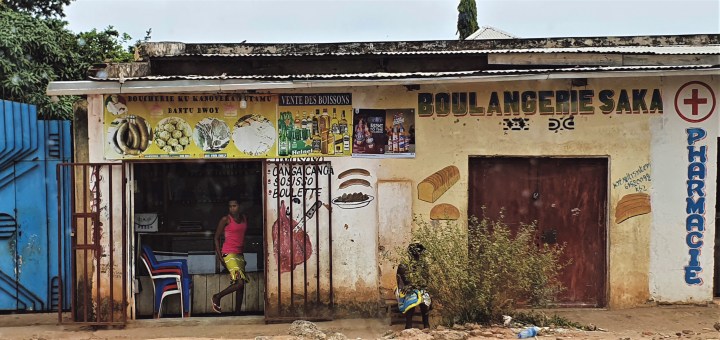
Now fast approaching Rwanda, the northernmost point of their Epic Road Trip, Bridget Hilton-Barber and Hugh Fraser take an unplanned detour via Burundi. It’s a sad and surreal experience because the country is underdeveloped, with only 13% of people living in urban areas. At city hotels, however, the poverty is hidden.
Burundi is the world’s poorest country and one of the least developed, facing widespread poverty, corruption, instability and authoritarianism. The US government has issued a travel advisory against nonessential travel to Burundi, and the British government warns that there’s a substantial risk of crime.
I was reluctant to go there. We were sitting on a hilltop in northern Tanzania, more than 5,000km from home, watching the sun slide down the sky and Lake Tanganyika turn gold and purple. Rwanda, the apex of our Epic Road Trip, was within reach and Hugh was trying to persuade me to go through Burundi instead of around it. I wasn’t feeling the love.
“It’s the quickest way to get to Kigali,” he argued. And since when is a South African afraid of poverty, corruption, instability and authoritarianism? Plus, Burundi is on the lake, he said, knowing I’m a complete lakehead. “Come, I’ll hold your hand.”
The customs and immigration offices were filled with old-fashioned furniture and equipment and reeked of timeworn bureaucracy.
We exited Tanzania through the Kabanga border post high up in the equatorial mountains and entered Burundi through the Kobero border. Drivers here use the right-hand lane – which is really weird when you’re driving a car with right-hand steering – and the language changes from Swahili to French, which is strongly regional.
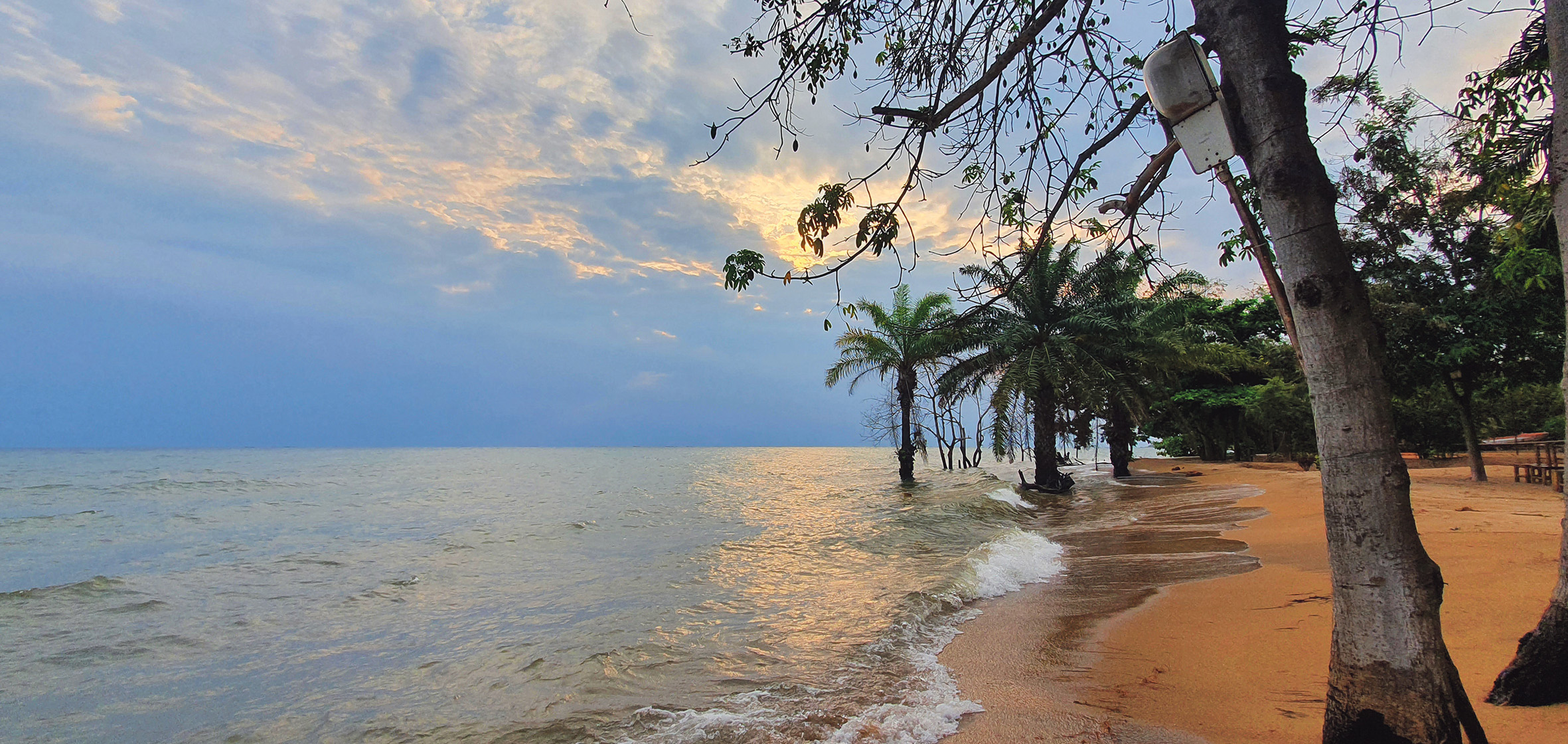
Tanganyika Blue Bay Lodge in Burundi. (Photo: Bridget-Hilton Barber)
It was a fairly officious crossing. Like many border posts in Africa, Kobero supports a sprawling trade network of officials, police, security, truckers, brokers, hustlers, hawkers and hagglers. We attracted an instant crowd of curious onlookers. A Subaru Forester filled to the gills with road trip stuff is a novelty to people who live in a country where the main form of transport is the bicycle.
An immigration official of very short stature with a gold tooth and a swagger of badges on his uniform sat on a chair, swinging his legs and winking at me, as Hugh produced the car papers for another official and negotiated in French. We bought a visa each for $40 and then the border security strip-searched the car. Absolutely everything was taken out, placed on the ground and inspected, although, to be honest, it felt less like aggression than curiosity.
Driving through Burundi was sad and surreal. It was like driving through one long, poor, very busy rural village untouched by modernity. Most people in Burundi live off subsistence agriculture – just more than 13% live in urban areas – and deforestation and soil erosion were evident. The shop signs were naively hand-painted, French and artistic, but shops were poorly stocked.
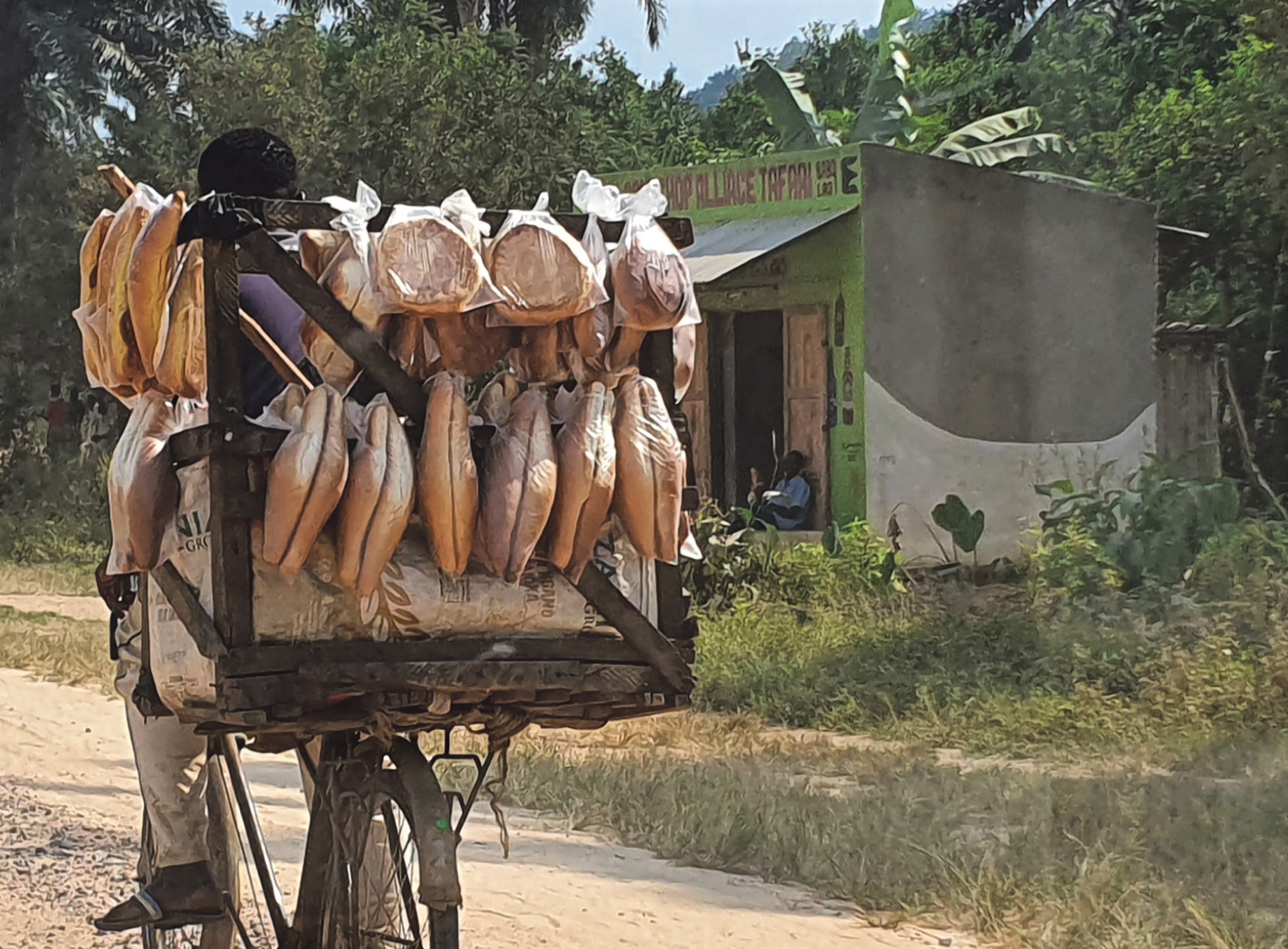
Bread delivery. (Photo: Bridget-Hilton Barber)
The main road along the lake and on to the capital of Bujumbura was largely unpaved and there were big trucks and buses, noticeably few passenger cars, lots of bicycles and people everywhere.
We saw cyclists carrying loaves of bread and giant bunches of dates and bananas, thatching grass, plastic containers, bags of charcoal. Many bicycles are taxis carrying two or three passengers – young girls, gogos, mothers and their infants.
In the seriously hilly areas, cyclists clung to the back of trucks to catch a free ride up the hill, and some brave young pedestrians also hopped on and caught a ride. Truck surfing, Burundi-style.
We saw women washing clothes in the lake and in rivers, carrying buckets and enormous bundles on their heads, children on their backs. We saw crowds of people in traditional clothes walking to church. Burundi is predominantly Roman Catholic, with a small Muslim population. We saw green tea plantations, fishing boats on the lake, more truck surfers, market after market, village after village.
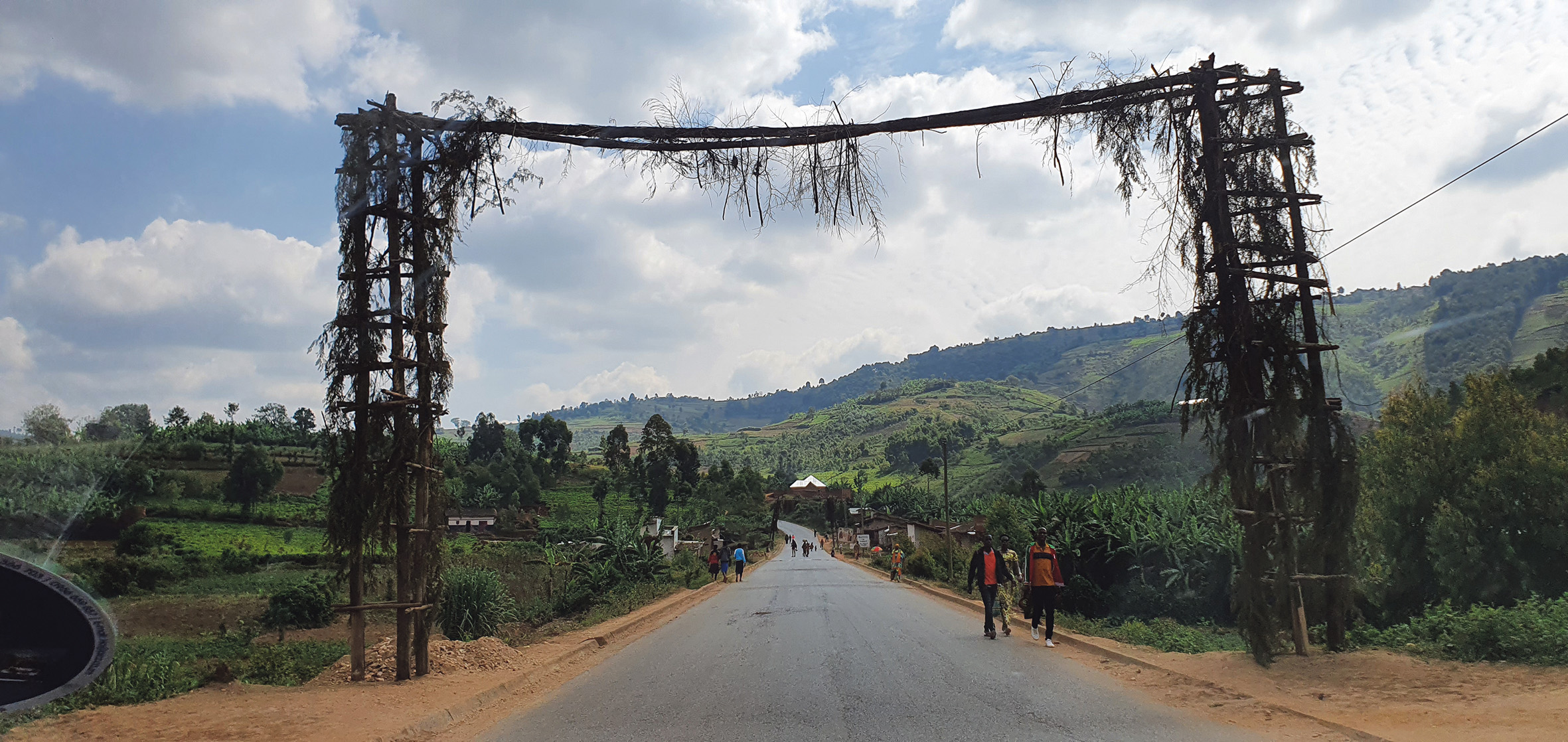
A village in Burundi. (Photo: Bridget-Hilton Barber)
We stuck to a recommended tourist spot and spent the first night at Tanganyika Blue Bay Resort. It was an overcast afternoon, and we followed our hearts to the beach, feeling philosophical and melancholic. Burundi’s political history is tragic. Colonised by Germany and later Belgium, it’s a litany of assassinations, coups, ethnic cleansing and civil wars; there were genocides in the 1970s and the 1990s, large-scale political strife in 2015.
But there was a very good personal reason to celebrate: Burundi was the 100th country in the world that Hugh had visited. He cracked a cold Primus, the local Burundi beer, which I’d never heard about but most beer-loving friends had.
Beer is big in southern and east Africa. Hugh had already tried St Louis from Botswana, Windhoek from Namibia, Zambezi from Zimbabwe, Mosi oa Tunya from Zambia and Kilimanjaro from Tanzania, and was still going to have Virunga in Rwanda, Carlsberg in Malawi and 2M in Mozambique.
Read more in Daily Maverick: Path less travelled — go excitedly chase waterfalls in Zambia, just don’t let your car battery die
For the first time, I tried the endemic fish of Lake Tanganyika – a delicious, firm white fish that is called mukeke in Burundi and the Democratic Republic of Congo, migebuka in Tanzania and bukabuka in Zambia. In English it’s called the lates perch (Lates angustifrons). We gazed out across the lake, listened to the sounds of the tide washing away the sins of history. Wind ruffled the tops of the trees and there was a sprinkle of rain.
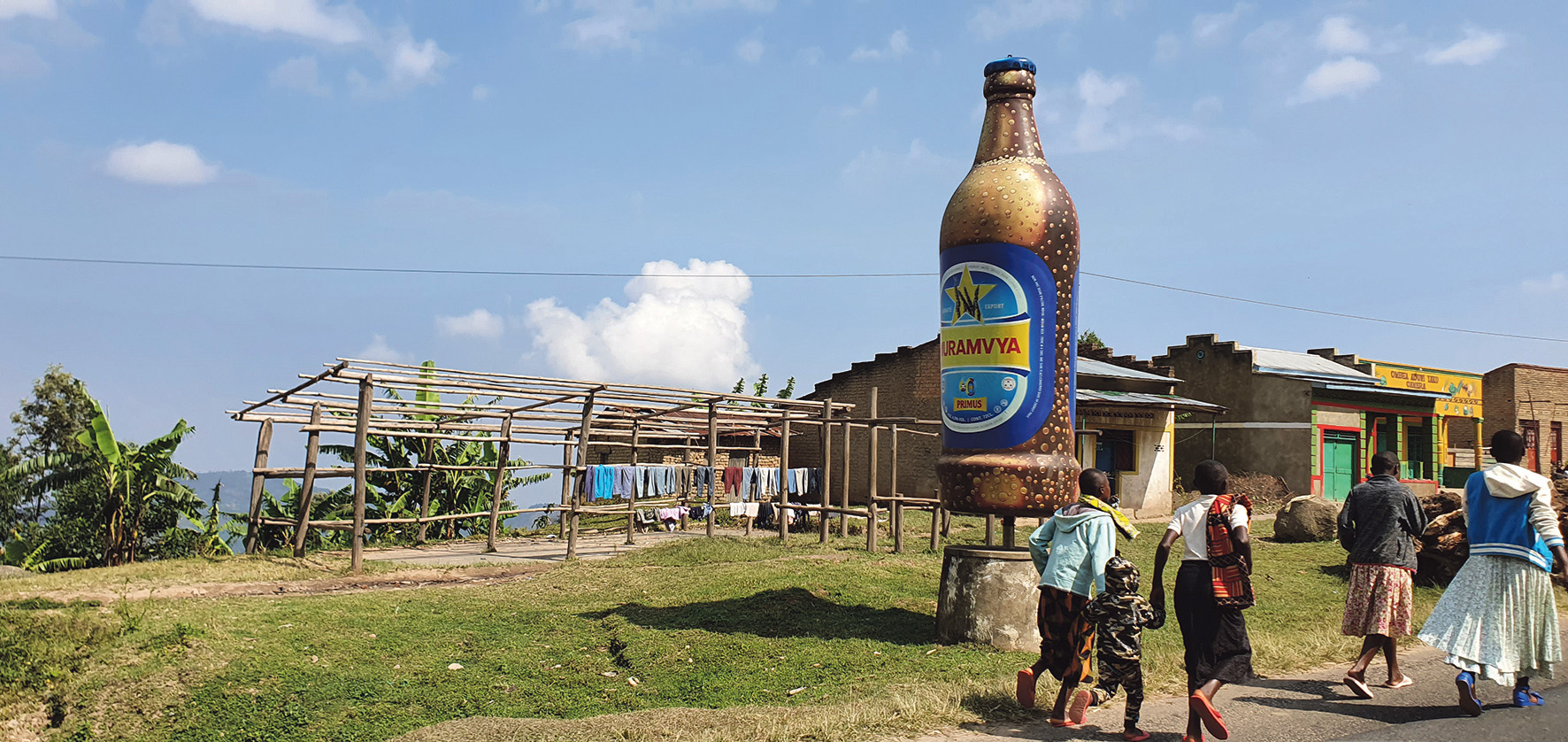
Primus beer statue. (Photo: Bridget-Hilton Barber)
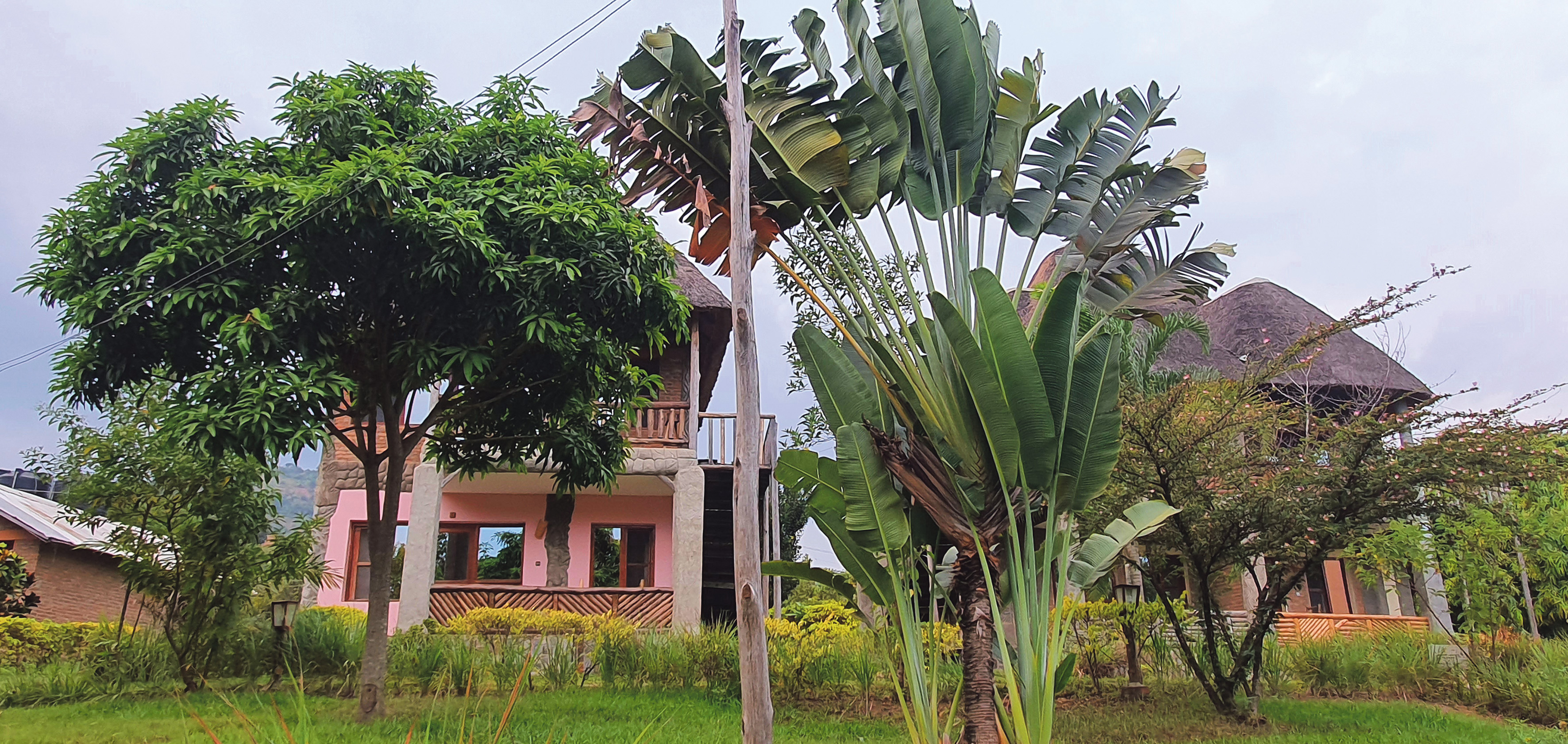
The Tanganyika Blue Bay Lodge. (Photo: Bridget-Hilton Barber)
On to Bujumbura
In the morning we woke to the sweet sound of the local muezzin calling people to prayer. We had breakfast and headed for the capital, Bujumbura, another bus-dodging, pothole-avoiding, chassis-grinding, bullet-sweating drive. It was on this drive we encountered one of the most fearsome potholes of our entire Epic Road Trip. It was so wide and deep that youngsters stood at the side of the pothole, asking for money to guide us through it.
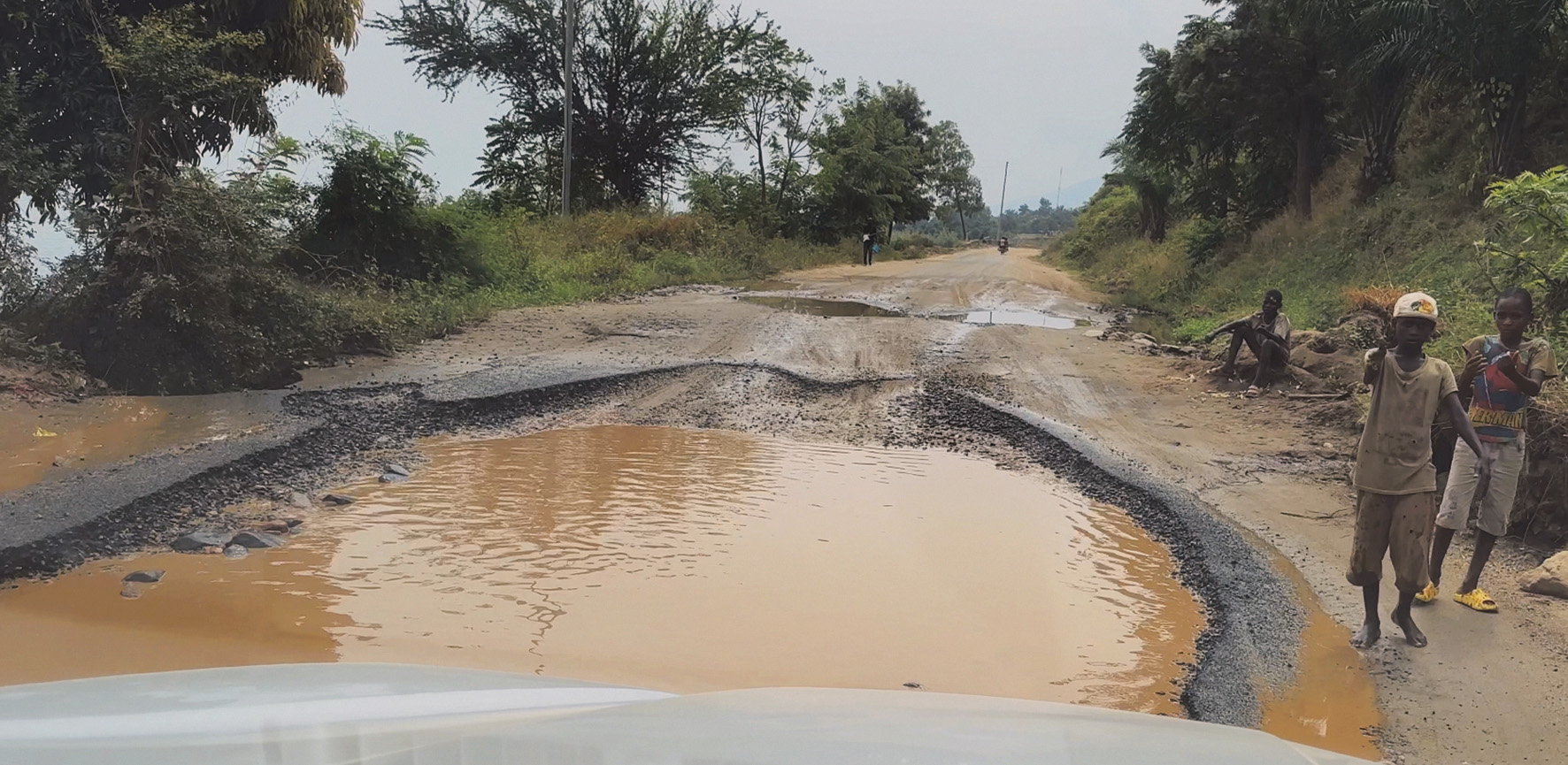
An enormous pothole in Burundi (Photo: Bridget-Hilton Barber)
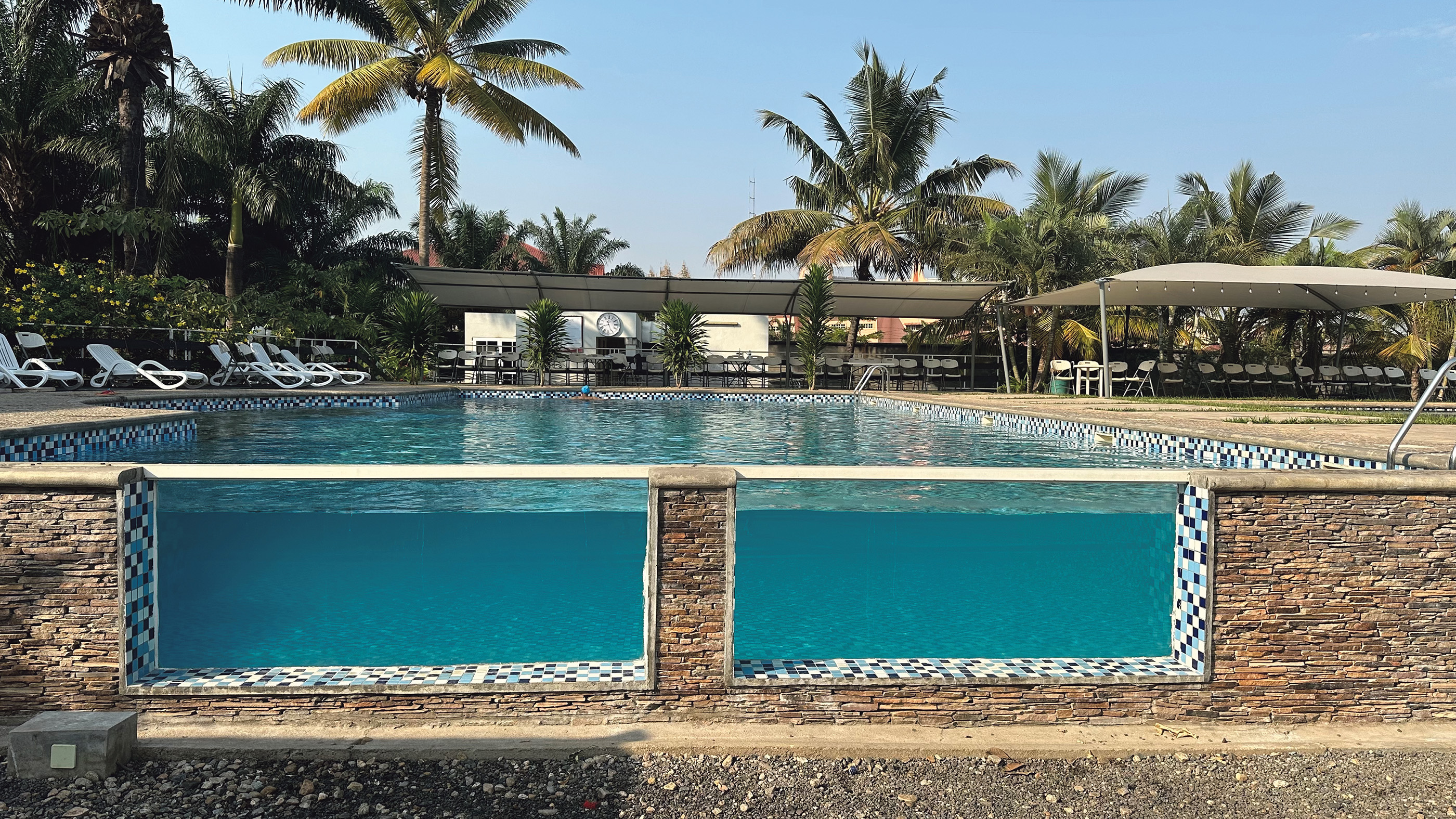
Safari gate hotel pool. (Photo: Bridget-Hilton Barber)
The outskirts of Bujumbura are one big, dusty, busy informal sector, but the city itself was charming and clean. The university presides over the city from a hilltop and the wide streets are neat and tree-lined. There were new billboards and retail spaces, signs of new technology and development. People were friendly and polite, and we didn’t feel unsafe at all. There were police and military vehicles across the city.
Read more in Daily Maverick: The hot springs and deliciously torrid tales at the end of Zambia’s road from hell
Read more in Daily Maverick: Breakfast in Botswana, sundowners in Namibia: succumbing to a land of plenty
Many places in Bujumbura won’t take a credit card and drawing cash proved to be a problem, with few working ATMs. Two city ATMs took the money from Hugh’s account but didn’t produce the cash on his end.
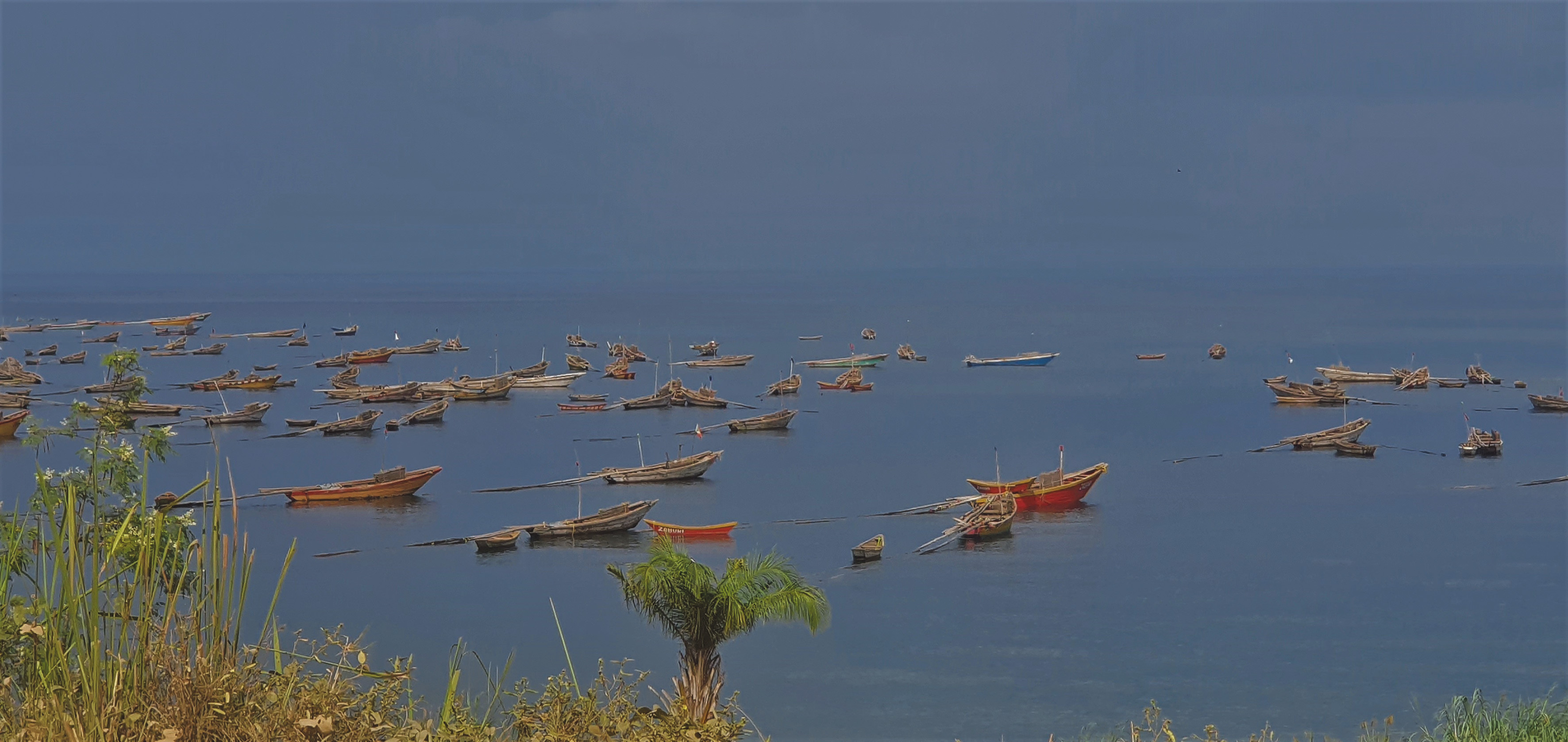
Fishing boats on Lake Tanganyika. (Photo: Bridget-Hilton Barber)
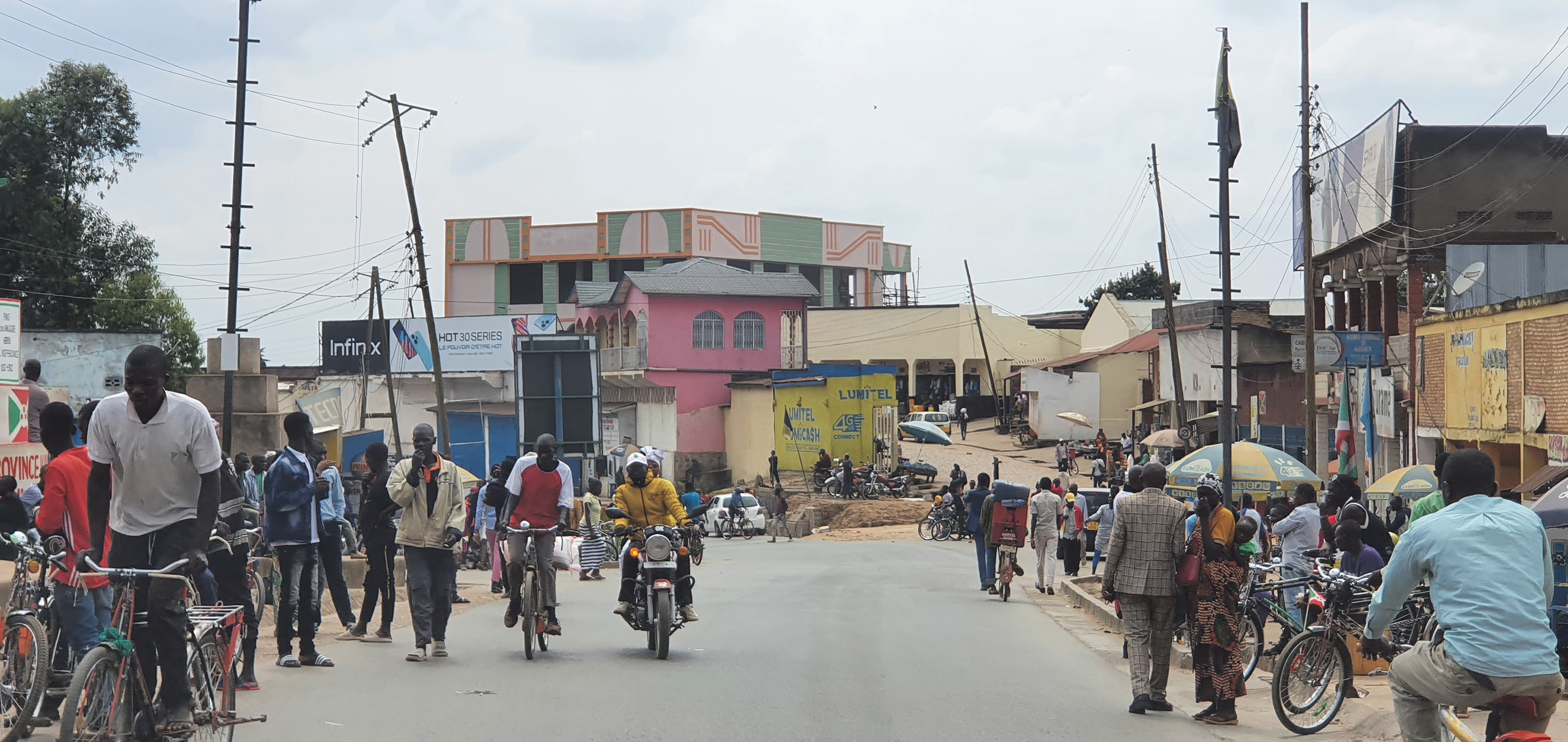
Burundi streets are bustling. (Photo: Bridget-Hilton Barber)
We stayed in a pleasant tourist area on the lakeshore, whose cafes and street spots reminded me of Maputo in the mid-2000s, and overnighted at the mysteriously named Hotel Safari Gate. It was a pleasantly blingy spot with aircon and Wi-Fi. There were flashy cars in the parking lot, and from the hotel fitness centre came the sounds of an aerobics class. In the enormous pool, children of the wealthy were taking swimming lessons. And in the hotel ballroom a fancy wedding was about to get under way. The gap between rich and poor was achingly obvious.
The next day we would drive to Rwanda. DM
This story first appeared in our weekly Daily Maverick 168 newspaper, which is available countrywide for R29.
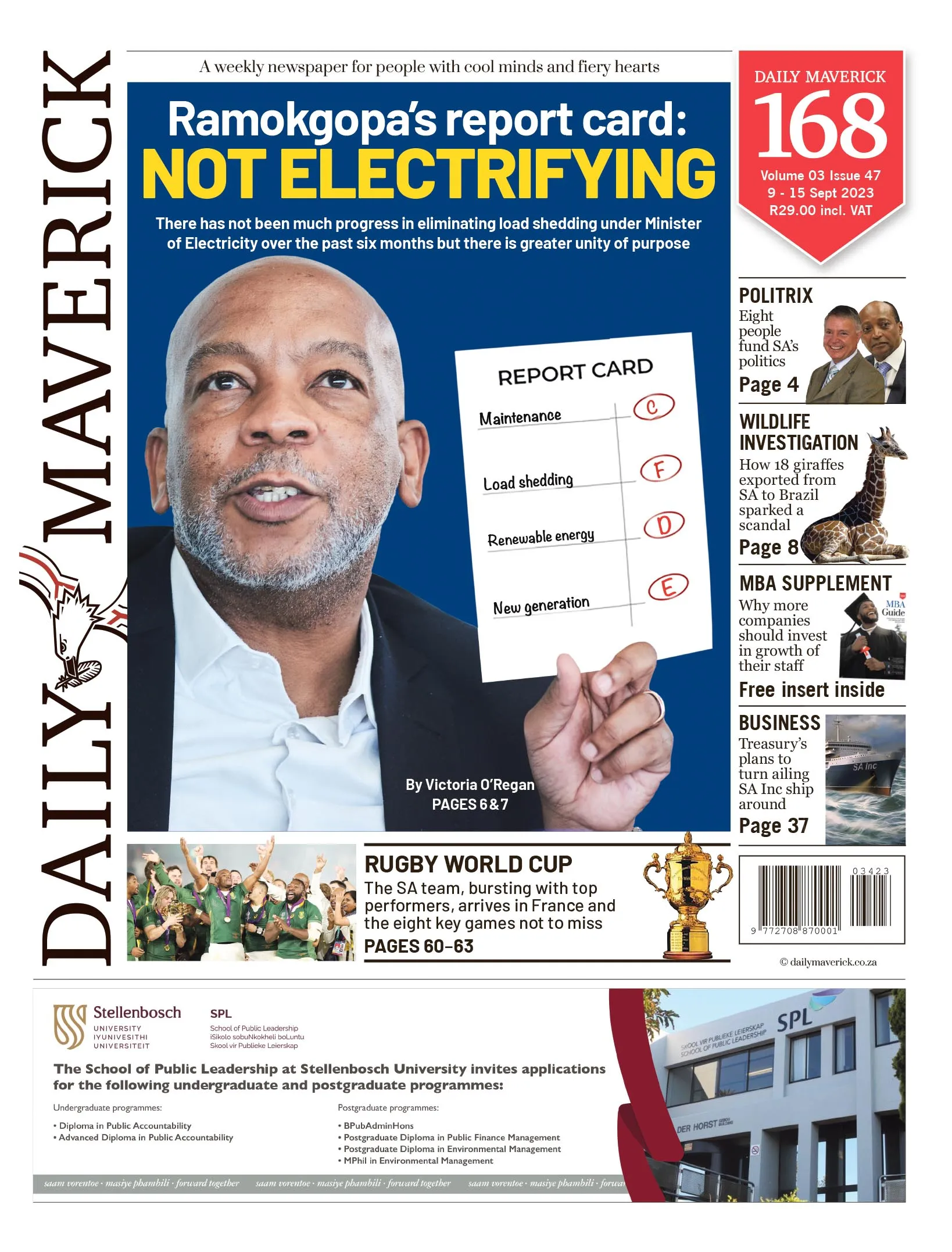



















 Become an Insider
Become an Insider
Comments - Please login in order to comment.